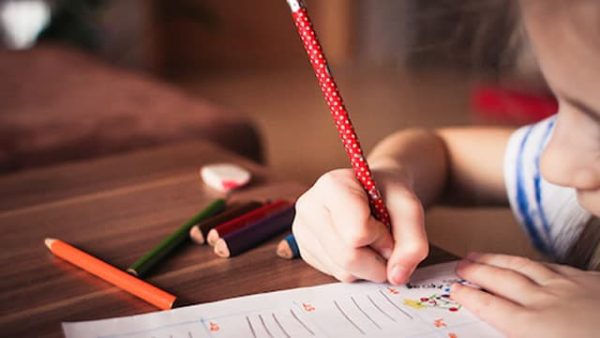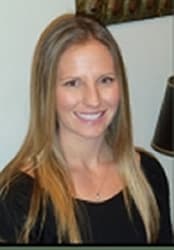Boosted vocabulary lessons may pave the way to literacy for students with learning disabilities

Vocabulary is a major stumbling block for many adolescents with learning disabilities who are trying to learn to read, but a UNC Charlotte researcher is developing ways to make it easier for these students to learn and retain key words.
Kristen Beach, an assistant professor in the Department of Special Education and Child Development, and a colleague from the University of California, Riverside, received a grant of nearly $1.5 million from the Institute of Education Sciences to fund a new study. It’s called “Vocabulary CHAAOS: Creating Habits that Accelerate Academic Language of Students,” and it explores an area of the utmost importance for young readers.
“Knowing the meanings of words is critical for developing clear and accurate understanding of text,” said Beach. “Providing instruction in academic vocabulary words that appear across subject areas with high frequency is imperative for struggling readers and students with disabilities to have a chance of independently reading and understanding grade-level or near grade-level text.”
 As the co-principal investigator of this three-year study, Beach set out to develop an intervention to improve academic language of adolescents with learning disabilities.
As the co-principal investigator of this three-year study, Beach set out to develop an intervention to improve academic language of adolescents with learning disabilities.
“Our multi-year approach will allow time to design lessons for a total of 144 words across grades six, seven and eight,” said Beach. “We will also be able to evaluate the impact of several years of strong instruction, as opposed to a single year, on students’ vocabulary knowledge and reading comprehension skill.”
Results from the National Assessment of Education Progress (2013) indicated that adolescents with disabilities have poor reading comprehension.
“Some estimates suggest that by the end of elementary school, struggling readers have learned 3,000-6,000 fewer words compared to strong readers,” said Beach. “This gap in word knowledge will persist or even widen if strong instruction in vocabulary is not provided.”
This study will allow researchers to develop, redefine and field test three sets of the intervention (one set for each grade) for adolescents with learning disabilities with the goal of improving academic language.
“By teaching vocabulary lessons within an intervention, we can better understand the needs of the students, redesign lessons with classroom teachers to better match their students’ needs and the needs of their school setting and evaluate the extent to which students learn the words taught from the instruction provided,“ said Beach.
“Research suggests that for teaching academic vocabulary, direct instruction in word meanings followed by contextual examples of how words are used in text, play with words and writing with words, is necessary for learners to learn and retain the meaning of new words,” she added.
This instructional model was originally designed by researchers in general education and modified in an earlier study to meet the needs of students with disabilities.
“Our major goals are to design and validate lessons for teaching 48 academic vocabulary words in grades six, seven and eight, using the modified, evidence-based approach,” said Beach. “Such a set of lessons for teaching academic vocabulary for students with disabilities does not currently exist to our knowledge; thus, we intend to design and publish (for free online) our finalized academic vocabulary lessons for any teacher to use in her classroom.”
Beach earned a Master of Arts degree in special education from Loyola Marymount University in 2008 and received a Ph.D. in special education from the University of California, Riverdale, in 2012.
Rollanda O’Connor of the Graduate School of Education at the University of California, Riverside, is the principal investigator of this study.